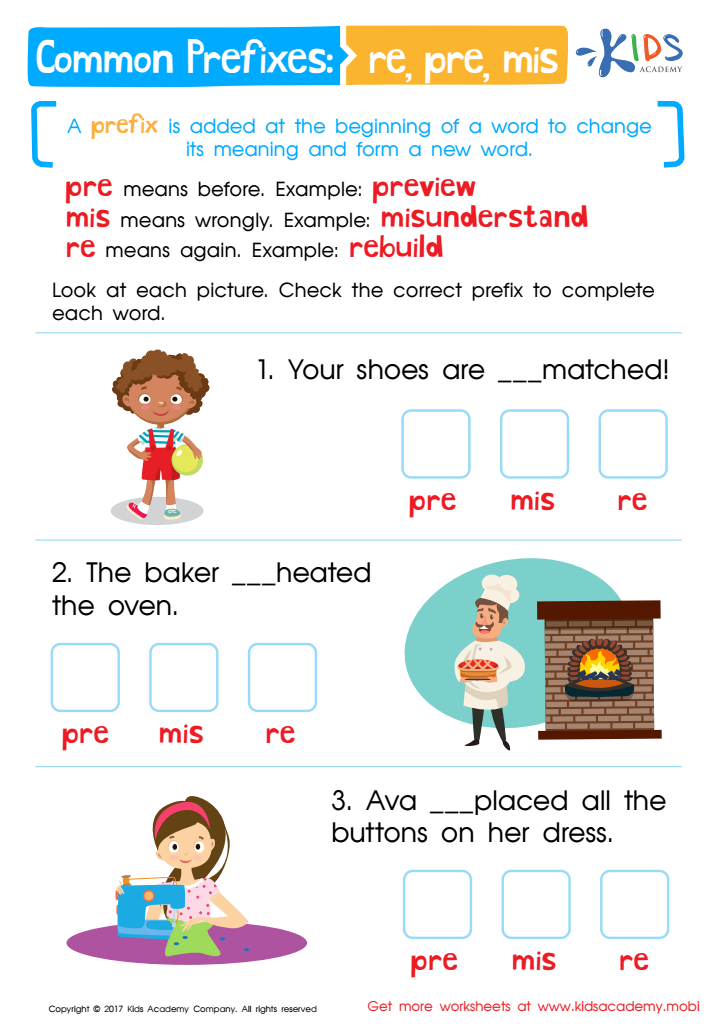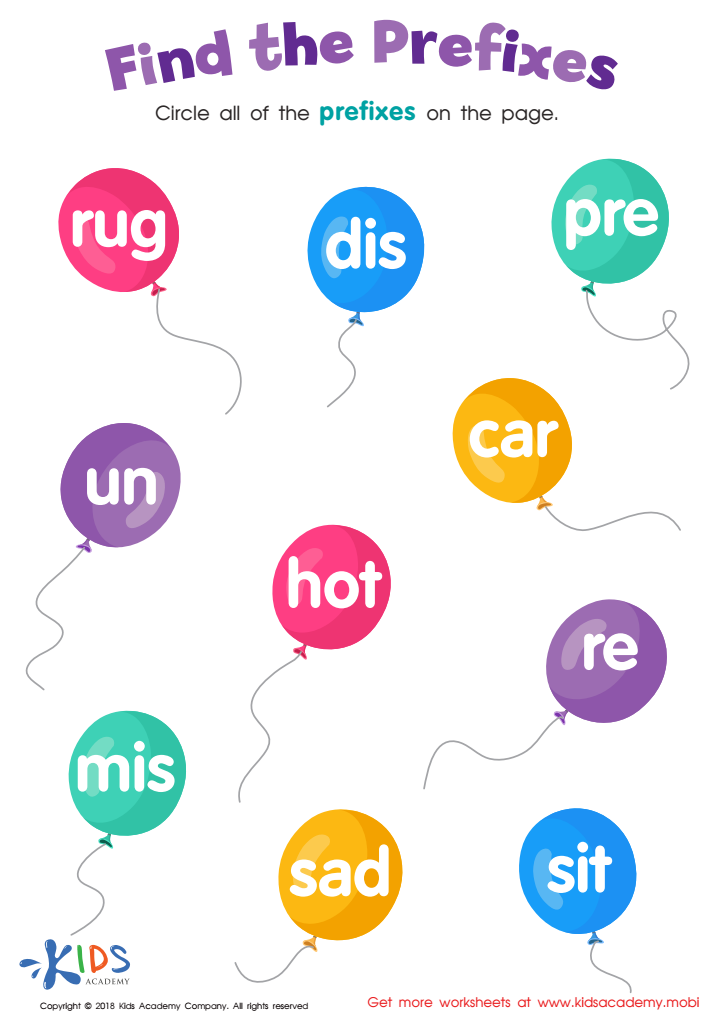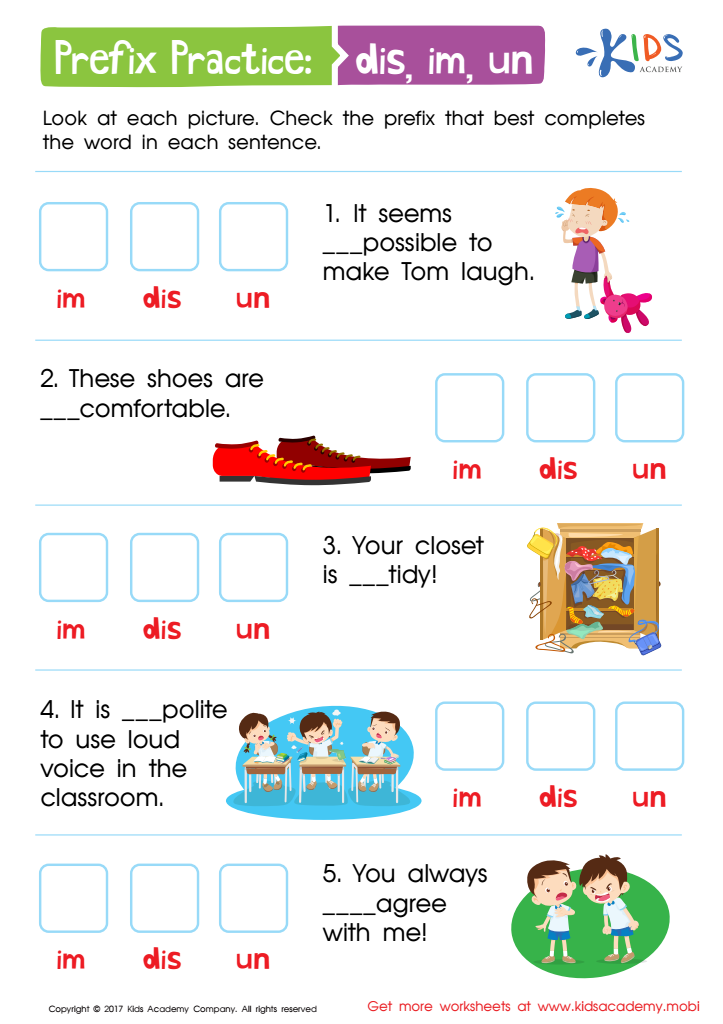Understanding prefixes Reading Worksheets for Ages 3-8
3 filtered results
-
From - To
Unlock your child's reading potential with our "Understanding Prefixes" worksheets, designed for ages 3-8. These engaging and vibrant activities introduce young learners to the concept of prefixes, enhancing their vocabulary and comprehension skills. Each worksheet features interactive exercises that promote recognition and application of prefixes, making learning fun and effective. Suitable for home or classroom use, these worksheets align with early literacy standards, helping children build a strong foundation in reading. Dive into the world of words and watch your child's confidence soar as they discover how prefixes can change meaning and enrich their language experience! Perfect for little learners!


Common Prefixes Worksheet: RE, PRE, MIS


Reading: Find the Prefixes Worksheet


Prefix Practice Worksheet: DIS, IM, UM
Understanding prefixes is essential for reading development in children aged 3-8 as it lays the foundation for vocabulary expansion and comprehension skills. Prefixes are letters added to the beginning of a word to modify its meaning. By recognizing and decoding prefixes, young readers can unlock numerous words, fostering a sense of independence in reading.
For parents and teachers, focusing on prefixes aids in teaching children analytical skills. When children learn to identify and understand prefixes, they can deduce meanings of unfamiliar words, which boosts their confidence and encourages exploration in reading. For instance, when a child learns that "un-" means "not," they can more easily grasp the concept of "unhappy" or "uncomfortable."
Additionally, understanding prefixes helps develop critical thinking. As children relate different words with the same prefix, they draw connections between concepts, enhancing their overall learning experience. This skill not only benefits literacy but also in subjects like science or mathematics, where complex vocabulary often relies on prefixes.
Moreover, cultivating a strong vocabulary during these formative years is crucial, as it directly influences academic success in later stages. Therefore, prioritizing the understanding of prefixes is instrumental in shaping a child's educational journey.
 Assign to My Students
Assign to My Students




.jpg)
















